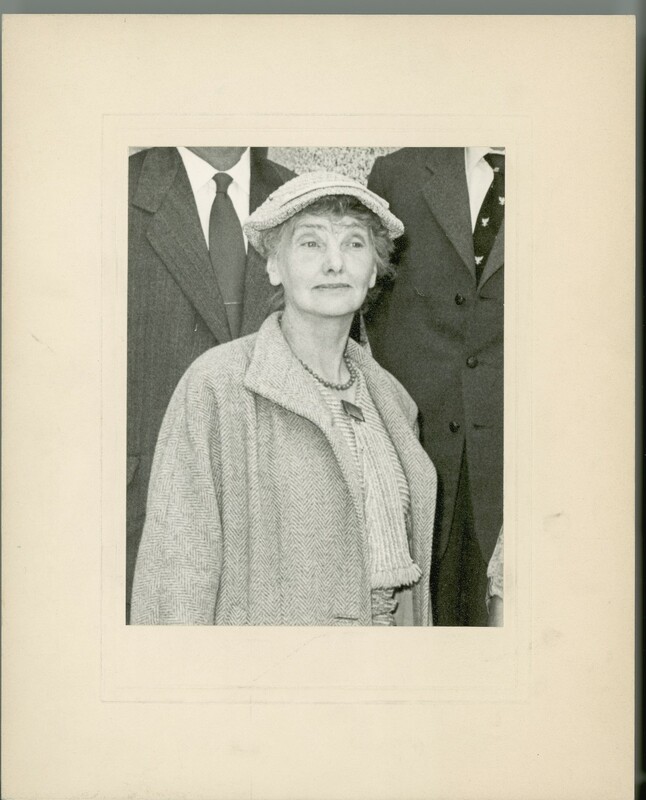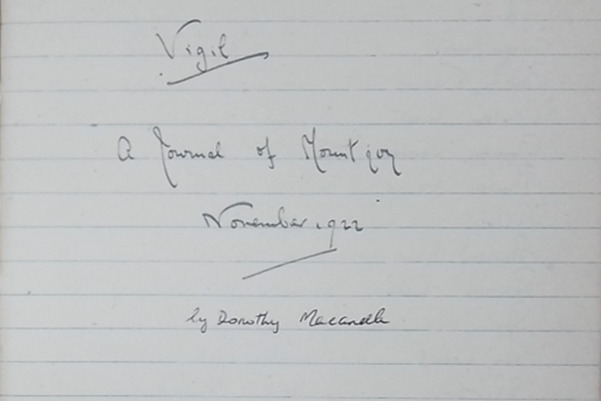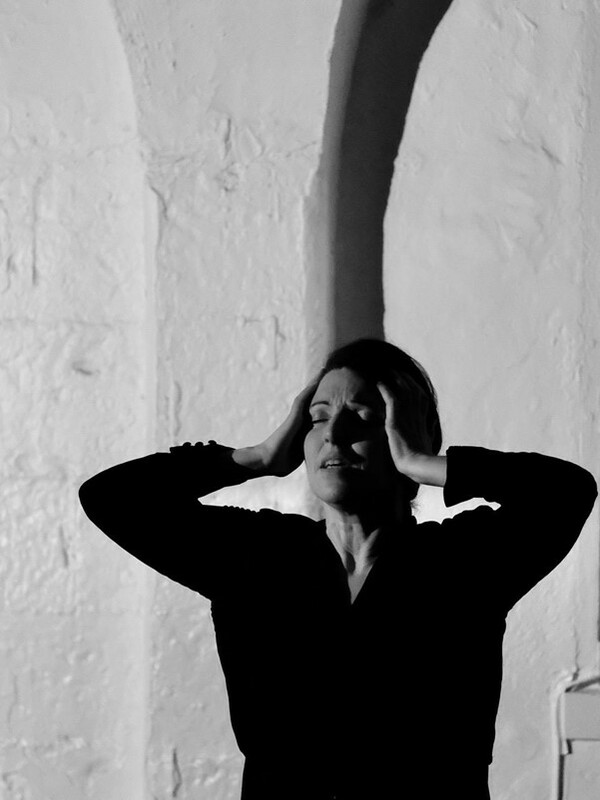
INTRODUCTION
The Dorothy Macardle Archive and Performance Project (DMAPP) is a research, writing and artistic initiative which was established in 2019. It is led by writer and theatre maker Declan Gorman and researcher and performer Sharon Mc Ardle while also collaborating with a range of diverse artists. Using the medium of theatre, radio and film DMAPP aims to reflect upon the legacy of artist of conscience and visionary Dorothy Macardle.
The journey began in 2017 when we were invited to perform one of Dorothy's early Abbey plays at a conference of the Dorothy Macardle Society in Dundalk. Neither of us knew much of Dorothy at that point, but that conference set us off on a journey. We decided to find out more about the life, times and legacy of Dundalk-born Dorothy with the view of writing a play about this remarkable woman. Given her multifaceted life, we quickly realised that this would be a challenge. A chance discovery caused us to focus on one brief but remarkable period in Dorothy’s life and embark upon what became a fascinating five-year adventure.
Dorothy Macardle was a playwright, historian, Gothic novelist, and international human rights rapporteur. She published several critically acclaimed gothic novels, one of which, The Uninvited, was adapted into a major Hollywood horror film in the 1940s. She was the author of a significant history called The Irish Republic, published in 1937. After the Second World War, Dorothy wrote a human rights report into the plight of minors orphaned and separated as a result of Nazi atrocities in Europe. Daughter of Sir Thomas Macardle, founder of the Macardle Moore brewing enterprise in Dundalk, she rejected her family's imperial values and became - in her own words - "an unrepentant propagandist" on behalf of the Irish Republican cause. During the Civil War, she was imprisoned without trial In November 1922, accused of anti-Treaty propaganda. She spent six months in prison, first at Mountjoy, later at Kilmainham and finally, briefly, at the North Dublin Union.
Not only would it be a challenge to contain such an expansive life in a short dramatic performance, we soon discovered another barrier to accessing Dorothy’s world. We discovered early in our investigation that many of her papers and manuscripts had been destroyed. Her brother burned her papers after her death in 1958, and her early writings were publicly burned in St. Stephens Green by Free State Soldiers in 1922. But then we were told that one set of papers, a series of diaries kept by Macardle while imprisoned in 1922 and 1923, had escaped the burnings and were now available on microfilm at the James Joyce library in the UCD archives.
As soon as we laid eyes on these rarely seen and unpublished notebooks, we decided to focus on this aspect of Macardle's life. On our first visit to the archive, we were convinced that the diaries, referred to as "holy grail material", could form the basis of a trilogy of creative pieces under the umbrella title of Prison Notebooks.
1. A one-woman theatre performance, which we hoped would take place at Kilmainham Gaol Museum.
2. A radio documentary tracing the process of archive research, transcription and workshop development towards the theatre production.
3. A short film: A memory scape
And so began our 4-year journey of investigation and creative endeavour as we moved back and forth between archives, gaol cells, and rehearsal room as our work gradually evolved.
Dorothy wrote her secret, scribbled diaries in conditions of poor light and sensory deprivation, recording her personal experience of detention, hunger strikes and beatings while documenting the resilience, political intelligence and humour of her fellow female detainees. Not only do the diaries capture the daily life and politics of the jails in which she was held, but they also offer extraordinary insights into the evolving consciousness, dreams and psychic experiences of an emerging writer of immense gifts whose importance in the shaping of modern Ireland has only recently been acknowledged. They reveal Dorothy not just as a committed political thinker but a visionary artist whose connection to the uncanny and meditations on time, trauma, and loss place her among the literary innovators of the early 20th century.
Our goal in creating the Prison Notebooks series is to gain a deep understanding of Dorothy Macardle and bring it to the public through a variety of disciplines, including theatre, film and radio. The Work of DMAPP is part of a wider movement to reclaim memory and focus attention on the contribution of women to the events that led to and followed the formation of the Irish State.
Dorothy Macardle, who was she? What do her prison diaries reveal about her, her fellow female rebels and detainees, and the politics of the Irish Civil War? How do we, as contemporary artists, deal with fragile matters of memory, legacy and personal testimony? How do we then forge the lyrical and mundane intimacies of a secret diary into a vivid public event that will allow this generation to appreciate the heroism of women so often omitted from the narrative of Irish history?
How do we, as artists, draw inspiration from archive collections and the historical sites where they are housed, exploring the power of the arts to interrogate and understand history and re-interpret it in imaginative ways? And we do this with a view to bringing it into the public domain in new and imaginative ways in the hope that it will encourage reflection and debate over the Decade of centenaries.
In our quest as artists back in the rehearsal room, we gain a new perspective on Dorothy Macardle, the imprisoned artist. And that perspective is Dorothy's own: her voice, her own words, her dreams, her own emotions as expressed in her own words: not a third-party interpretation but an empathetic channelling of the spirit of Dorothy Macardle herself. That, we hope, will provide a fresh perspective on Irish history.
Prison Notebooks, the live theatre show, was made possible with the support of an Arts Council Theatre Projects Award and Louth County Council. It was presented at Kilmainham Gaol in September 2022 before going to Smock Alley in November 2022.
Dorothy Macardle’s Prison Notebooks, the radio documentary, was supported by the Broadcasting Authority of Ireland and RTÉ and was broadcast on the Lyric Feature on 6th November 2022 to mark the centenary of Macardle’s arrest.
Prison Notebooks: A Memory Scape was funded by the Bank of Ireland ‘Begin Together Arts Award’ 2021 and will be exhibited at the Louth Museum, Dundalk, in May 2023.


